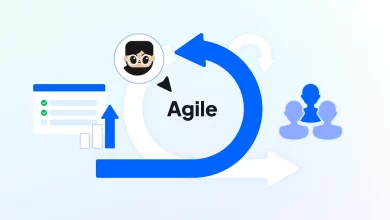Everything You Need to Know About Digital Transformation for FinTech

Digital transformation has changed the way businesses operate and interact with consumers. For those in the financial technology industry, digital transformation has been an ongoing effort over the last decade. However, now the terms digital transformation and FinTech are becoming more intertwined than ever before.
This makes sense as FinTech companies have already been putting a lot of focus on digital transformation efforts to make sure their products and services stay on top of the latest trends in fintech technology and make it easier for their clients to do business with them by going paperless, offering seamless online banking and other digital conveniences like mobile payments, etc.
However, to take full advantage of digital transformation in FinTech, business owners need to know where to start and what steps to take first. Here’s everything you need to know about digital transformation in FinTech, from hiring new talent and updating your business model to partnering with tech-focused corporations and choosing the right channels to market.
What is Digital Transformation?

Digital transformation is a broad term that encompasses the way in which organizations use digital technologies as part of their business strategy. Digital transformation can happen on an enterprise-wide level, but it also happens at an individual level.
Every person is impacted by the digital world and how it changes our daily lives. Digital transformation has changed how we do things, what we do and who we are as people.
The Changing Fintech Landscape
Digital transformation is affecting the Fintech industry in a variety of ways. From customer expectations to regulation, here are some of the ways that digital transformation is affecting the Fintech industry.
Digital transformation with Banking Software Solutions has changed consumer expectations in Fintech. Customers expect convenience and speed from their banks and other financial institutions, which means that they expect any interactions with these institutions to be digitized.
Mobile banking apps have been a huge success because they offer customers features such as instant notifications of transactions, with no need for a credit card or cash. These trends are only going to continue as more customers demand digital services.
For example, there is an increasing trend of customers wanting their bank to allow them to pay their bills directly from the app on their phone. However, many people still don’t know what digital transformation actually entails.
The definition of digital transformation can be broad and vague at times – it’s generally described as technology-enabled change that affects every aspect of business: operating models, processes, talent and organization structure.
Digital transformation goes beyond simply making changes within the company; it involves working together with external partners who specialize in aspects such as engineering and artificial intelligence (AI). AI can help companies better analyze data for new insights about their markets, so that they can make smarter decisions about products and policies.
Top Technologies Impacting the FinTech Industries
Robotic Process Automation (RPA)
Robotic Process Automation, or RPA, is a type of software that automates business processes. It’s an artificial intelligence system that imitates human actions. The software recognizes data patterns and automatically performs repetitive tasks. Plus, it can make sense of unstructured data and communicate in natural language with humans.
RPA is a process automation technology that enables organizations to automate and transform their customer-facing processes. An RPA system is designed to enable businesses to execute customer interactions in the most efficient manner possible, while still providing an excellent customer experience.
For the fintech industry specifically, this means lower operating costs and improved customer service. The end result of adopting RPA is a more productive workforce and a higher level of customer satisfaction.
Artificial intelligence
AI is the simulation of human intelligence processes by machines, especially computer systems. It encompasses various technologies, such as machine learning and natural language processing. The idea behind AI is that these intelligent machines can be programmed to learn from human experts and make decisions on their own without needing instructions.
As Artificial intelligence becomes more prevalent in the fintech industry, it is becoming a powerful tool that can be used by companies. By using AI, people are able to see patterns or anomalies in large sets of data that humans would not be able to catch. AI can also parse through large amounts of information and find relationships or connections between two different pieces of data without any bias.
Workload automation
Digital transformation is the process of integrating new digital technologies into an organization’s business operations. It focuses on modernizing legacy systems and making them more efficient, scalable and cost-effective. Modernization can be achieved through a number of techniques, including workflow automation.
Efficiency is the name of the game when it comes to business. Now, with Workload automation , businesses can rely on technology to get back more time and focus on high-value work. One such example is in the fintech industry, where Workload automation has made a huge difference.
For example, Workload automation helps with addressing KYC regulations and avoiding repetitive tasks like data entry. This frees up employees so they can concentrate on making connections with new clients or researching new investments. It also helps them complete their workload faster and more accurately, which leads to increased profitability.
Blockchain
The best part about using Blockchain is that you don’t need a third party like a bank or credit card company! All of your information is kept on this public ledger so anyone can see it. That means no one has to trust any institution, but the technology itself. Your data is encrypted and the only people who can access it are you and those who you have given permission too.
In the near future, many believe that we will be able to do things like vote in elections with blockchain technology because there would be no way for corrupt people in power to steal votes!
In 2016 alone, Blockchain startups have raised over US$270 million from venture capital investors with the majority of funding going towards financial services companies. Such companies include Chain Inc., Coinbase Inc., Circle Internet Financial Ltd., Ripple Labs Inc., and BitPay Inc.
The use of Blockchain will also allow banks to speed up transactions and lower settlement fees considerably. The result is cheaper banking services which will be beneficial for consumers as well as small businesses around the world.
Cloud computing
Cloud computing is the use of a remote server and data storage with access through the internet. With this type of technology, you can process and store large amounts of data without having to worry about space constraints.
Companies like Amazon Web Services (AWS) offer cloud services that allow companies to rent servers in order to store their data. There are three types of AWS packages: Basic, Standard, and Premium.
One of the ways Cloud computing is affecting the fintech industry is that it’s enabling companies to scale up or down their technology at the click of a button. Cloud providers offer pay-as-you go pricing, meaning companies can take advantage of new technologies on a trial basis before committing. The flexibility and scalability of Cloud services make it easy for startups and small businesses to enter this rapidly growing market.
Document automation tools
A document automation tool is a software solution that helps you streamline the process of creating, editing and signing documents. These tools provide a suite of features that automate specific functions in the editing and signing process.
For example, some tools can automatically fill in fields from one document (such as an invoice) into another document (such as a purchase order). Other tools allow you to create templates for commonly used documents, which makes it easier to sign them without needing any additional information.
Digital transformation is affecting the industry in many ways, from document automation tools to new payment technologies. This has opened up a wealth of opportunities and changes as financial institutions grow their customer base, explore new markets and increase their profits. Digitalisation will also create more jobs, such as business intelligence analysts who forecast how digitalisation could impact organisations’ operations.
As we’ve seen with other industries, technology can be used to make processes more efficient and transparent. From the blockchain that’s revolutionising supply chain management to robotic process automation (RPA) improving customer service at call centres – anything can be improved by adopting modern technology solutions
NLP & reporting automation bots
NLP stands for Natural Language Processing. It is a technology that uses machine learning to understand the meaning of text or speech. Reporting automation bots are software programs that automate tasks such as data retrieval and compiling reports.
These bots can scan websites, social media sites, chat messages, emails, etc., and send compiled information directly to company managers via email alerts. Companies can also use them to schedule meetings with other company employees or members of their staff. The most popular tools currently used for this purpose are Microsoft’s Skype bot Cortana and Facebook Messenger’s bot M.
NLP and reporting automation bots are two major technologies that have played a huge role in the fintech industry. NLP, or natural language processing, is a technology that has changed the way people interact with their finances.
The idea of NLP is to allow people to find what they need on their own without having to rely on customer service representatives. When using NLP, bots can answer all of your questions as well as provide personalized information based on what you’re looking for.
Reporting automation bots are another type of bot that has been affecting the fintech industry. These types of bots allow managers and executives to automate company reports so they don’t need an IT team or expensive software.
Process Mining
Process mining is a process that examines what people are doing and why they are doing it. It also explores how processes could be improved with the use of technology. There are three stages of process mining: Discovery, Analysis, and Implementation. The first stage is discovery where the goal is to identify all relevant information about a business process from beginning to end.
The digital transformation in fintech helps with things like fraud detection, customer service through chatbots, AI-assisted decision making, etc. An example of this is HSBC which has a wealth management division called HSBC Premier that uses process mining to track the performance of their advisers and offer advice on what they should do differently.
They found that some of their most successful advisers were not being used as much because they had lower time on task metrics than less successful advisors; so they made adjustments to have those more productive advisors work more hours and allowed them to set their own schedules instead of adhering strictly to the ones assigned by HSBC.
Overall, HSBC sees process mining as a great way for them to monitor how different business processes are operating within the company and make changes accordingly.
Web scraping
The definition of Web scraping is a process that extracts information from websites. Web scraping often involves extracting data from a public website and converting it into an easily digestible format. There are three main methods that Web scrapers use to extract data:
- Process the output of an API in a very specific way;
- Extract the HTML content of a webpage and find specific tags with given classes or IDs;
- Scrape the text content on a webpage, meaning the text found between images, videos, and other objects on a webpage.
The fintech industry is a rapidly evolving and expanding market. With new technologies coming out every day, it can be hard to keep up with the latest innovations. With this high level of change, there has been an increased demand in digital transformation services as many fintech companies try to stay competitive in this fast-paced market. Web scraping is just one of many tools being used to stay on top of trends.
Conclusion
I hope that this blog post has given you some helpful insights into the world of digital transformation and how it can be applied to your business, specifically in the field of financial technology.
If there are any questions, please feel free to reach out! Digital transformation is essential for all financial institutions and startups. Hire Banking & Finance IT Solutions company with expertise in developing mobile apps, cloud-based applications and other platforms. We have a team of developers that can work on your project and provide you with the best solution within the given time frame.




